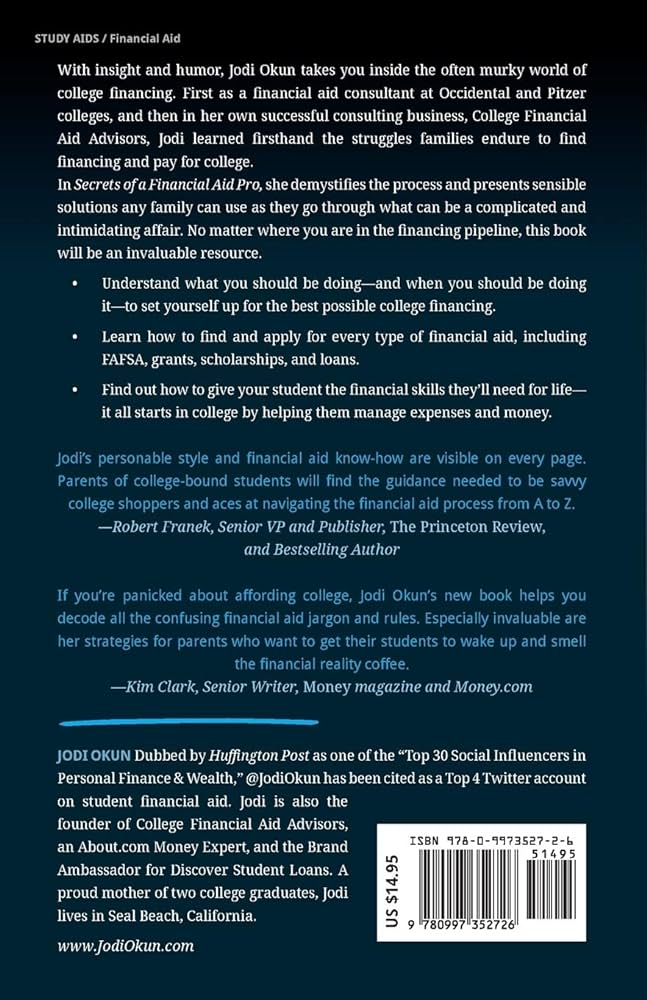9 Best Books on Personal Finance: Master Your Money with Expert Guidance
Navigating the world of personal finance can feel overwhelming, but the right guidance can make all the difference. Whether you’re looking to build wealth, manage debt, or simply understand where your money goes, a good book can be your best ally.
1. Understanding the Basics: “The Total Money Makeover” by Dave Ramsey
Dave Ramsey’s “The Total Money Makeover” is a must-read for anyone beginning their financial journey. It provides a straightforward roadmap to control your finances effectively.
Key Principles of Financial Management
Discover the key principles Dave Ramsey outlines to achieve financial freedom. Ramsey emphasizes living below your means and prioritizing a debt-free lifestyle. He advocates for creating an emergency fund, systematically eliminating debt, and investing for the future. These principles help you establish a solid financial foundation and avoid common money pitfalls.
Why Dave Ramsey’s Approach Works
Learn why many people find success with Dave Ramsey’s approach. His methods are simple, actionable, and backed by real-life success stories. The book’s step-by-step plan, known as the “Baby Steps,” offers clear guidance, making it easier to follow. By focusing on behavioral change rather than just numbers, Ramsey’s approach ensures lasting financial habits.
2. Focusing on Investment: “The Intelligent Investor” by Benjamin Graham
Benjamin Graham’s “The Intelligent Investor” remains a seminal work on investment. Known as the father of value investing, Graham’s lessons are timeless and invaluable.
The Philosophy of Value Investing
Value investing, as Graham describes, involves analyzing a company’s fundamentals, such as earnings, dividends, and growth potential. You’re encouraged to buy stocks when they’re undervalued and sell them when they reach their intrinsic value. This method minimizes risks and prevents emotional decisions based on market fluctuations.
How This Book Can Shape Your Financial Future
Reading “The Intelligent Investor” equips you with the knowledge to make sound investment decisions. Graham’s principles teach you patience, discipline, and the importance of thorough research. This book helps you identify undervalued stocks, reducing the likelihood of financial loss, and can significantly improve your investment portfolio over time.
3. Embracing Frugality: “Your Money or Your Life” by Vicki Robin & Joe Dominguez
Your Money or Your Life” by Vicki Robin and Joe Dominguez is a classic guide to transforming your relationship with money. It offers invaluable insights on how adopting a frugal lifestyle can lead to financial freedom and greater happiness.
The Relationship Between Time, Money, and Happiness
Understanding the link between time, money, and happiness is crucial. Robin and Dominguez illustrate how people often trade their time for money, neglecting what truly makes them happy. They promote evaluating each dollar spent in terms of the time you sacrificed to earn it. By doing this, you’ll realize the importance of spending on what truly matters.
Achieving Financial Independence Through Simple Living
Achieving financial independence is attainable through simple living. The authors guide you through practical steps such as tracking expenses, reducing unnecessary spending, and investing wisely. By simplifying your lifestyle, you can save more and work towards financial goals. This method emphasizes conscious spending, helping you build a financially secure future and live a life aligned with your values.
4. Beginners Guide to Stocks: “The Little Book of Common Sense Investing” by John C. Bogle
John C. Bogle simplifies the complex world of investing, making it accessible for beginners. His approach focuses on the long-term benefits of index fund investing.
The Power of Index Fund Investing
Bogle champions index fund investing as a smart, low-cost investment strategy. Index funds, which track the performance of a market index like the S&P 500, offer broad diversification and lower risk compared to individual stocks.
Reduce risk: Investing in a basket of stocks spreads your risk across various sectors, minimizing the impact of any single stock’s poor performance.
Cut costs: Index funds typically have lower fees than actively managed funds, meaning you keep more of your returns.
Simplify investing: You don’t need to pick individual stocks, which can be both time-consuming and risky. Instead, you mirror the overall market.
Bogle’s research demonstrates that over the long term, a well-chosen index fund often outperforms the majority of actively managed mutual funds.
Why Keeping It Simple Succeeds
Bogle insists that simplicity is key in investing. Complicated strategies and frequent trading usually lead to higher costs and lower returns. A simple, consistent approach often leads to better outcomes.
Avoid market timing: Predicting market movements is incredibly difficult, even for experts. Stick with your investments and ignore the noise.
Stay invested: Consistently invest over time rather than trying to hit the market just right. This will help you take advantage of compound growth.
Focus on costs: High expenses can erode your returns. Lower-cost index funds help maximize your investments’ growth.
By following Bogle’s advice, you can achieve long-term financial success with minimal stress and effort. His principles provide a solid foundation for anyone looking to start their investment journey.
5. Advanced Financial Strategies: “Rich Dad Poor’ve Dad” by Robert T. Kiyosaki
“Rich Dad Poor Dad” by Robert T. Kiyosaki offers advanced financial strategies to improve your financial mindset and build wealth. It challenges conventional wisdom about money and provides insights into financial education and wealth-building from Kiyosaki’s personal experiences.
The Importance of Financial Education
Understanding financial education is crucial for achieving financial freedom. Kiyosaki argues that traditional schooling often misses key financial lessons. Instead, he suggests learning about assets, liabilities, and how money works through real-world experience. By prioritizing ongoing financial education, you’re better equipped to make informed decisions, avoid common financial pitfalls, and create sustainable wealth.
Different Perspectives on Wealth Building
Examining different perspectives on wealth building is a core lesson in Kiyosaki’s book. He contrasts the advice from his “poor dad,” who followed a conventional career path, with insights from his “rich dad,” who built wealth through entrepreneurship and investment. This juxtaposition highlights the value of thinking beyond a paycheck and exploring opportunities in real estate, businesses, and investments. By embracing a mindset geared toward creating and acquiring income-generating assets, you can pave the way for long-term financial success.
6. Mastering Money Management: “I Will Teach You to Be Rich” by Ramit Sethi
Combining Psychology with Finance
Sethi blends psychology with finance to create a unique approach to wealth building. He delves into the mental barriers that often prevent people from achieving financial success, such as fears and misconceptions about money. By addressing these psychological factors, Sethi empowers you to make smarter financial decisions. For instance, he highlights the importance of understanding your spending habits and aligning them with your goals.
Practical Tips for Saving and Investing
Sethi offers actionable advice to help you save and invest wisely. He provides a six-week program that covers everything from optimizing your credit cards to automating savings. Sethi breaks down complicated financial concepts into simple, manageable steps. For example, he suggests setting up automatic transfers from your checking to savings account to build an emergency fund effortlessly. He also explains how to invest in low-cost index funds for long-term growth.
7. Women and Finance: “Smart Women Finish Rich” by David Bach
David Bach’s “Smart Women Finish Rich” is a comprehensive guide tailored to help women navigate the unique financial challenges they face. The book emphasizes achieving long-term wealth through practical strategies.
Specific Financial Challenges Faced by Women
Women often encounter distinct financial obstacles. They tend to live longer than men, which means more years of retirement to fund (source: Social Security Administration). Women also earn less on average, with a gender pay gap of about 18% as of 2020 (source: U.S. Census Bureau). Furthermore, many women take career breaks for caregiving, affecting their earning potential and retirement savings.
Strategies for Long-term Wealth
Bach offers actionable steps for building long-term wealth. Automate your savings to ensure consistency. Invest in retirement accounts like 401(k)s or IRAs to take advantage of tax benefits and compound growth. Understand and diversify investments to mitigate risks. Bach also emphasizes financial education, encouraging you to be proactive and informed about your financial decisions.
8. Behavioral Finance Insights: “Predictably Irrational” by Dan Ariely
Dan Ariely’s “Predictably Irrational” dives into the hidden forces shaping our financial decisions. It’s an essential read for uncovering the irrational behaviors that affect your money management.
Understanding Financial Decision-Making
Ariely illustrates how our decisions aren’t as logical as we assume. He explains how you often fall prey to cognitive biases like anchoring and the decoy effect. For instance, you might choose a pricier option simply because it’s presented alongside an even more expensive one. Understanding these tendencies helps you make more informed choices.
How Emotions Affect Our Financial Choices
Ariely shows that emotions heavily influence your financial decisions. You might overspend when you’re happy or fear recession news and make hasty investment changes. Learning to recognize these emotional triggers empowers you to manage your finances rationally, avoiding costly mistakes.
By aligning your financial strategies with insights from “Predictably Irrational,” you can better navigate the irrational quirks that impact your money.
9. Planning for Retirement: “The Automatic Millionaire” by David Bach
David Bach’s “The Automatic Millionaire” explores a straightforward approach to achieving financial independence and securing your retirement. This book is essential for anyone looking to simplify their path to wealth.
The Importance of Automating Your Finances
Automate your finances to ensure you save and invest consistently. Bach emphasizes that automation removes the need for willpower, making it easier to stick to your financial goals. By setting up automatic withdrawals for savings and investments, you ensure that important financial tasks happen without you having to think about them.
Simple Steps to Grow Wealth Effortlessly
Follow simple steps to grow wealth effortlessly. First, set up automatic transfers from your paycheck to your savings and retirement accounts. Next, automate your bill payments to avoid late fees and penalties. Lastly, invest in diversified portfolios like index funds to let your money grow passively. By incorporating these strategies, you can build substantial wealth over time with minimal effort.
Conclusion: Implementing Lessons from the 9 Best Books on Personal Finance
You’ve explored a range of personal finance books that offer valuable insights and practical strategies. Each book provides unique perspectives on managing money, investing wisely, and achieving financial independence. By applying the lessons from these books, you can build a solid financial foundation and make informed decisions that align with your goals.
Whether you’re just starting your financial journey or looking to refine your strategies, these books serve as essential guides. Embrace the knowledge shared by these experts and take actionable steps to improve your financial well-being. Remember, consistency and informed decision-making are key to long-term success.






